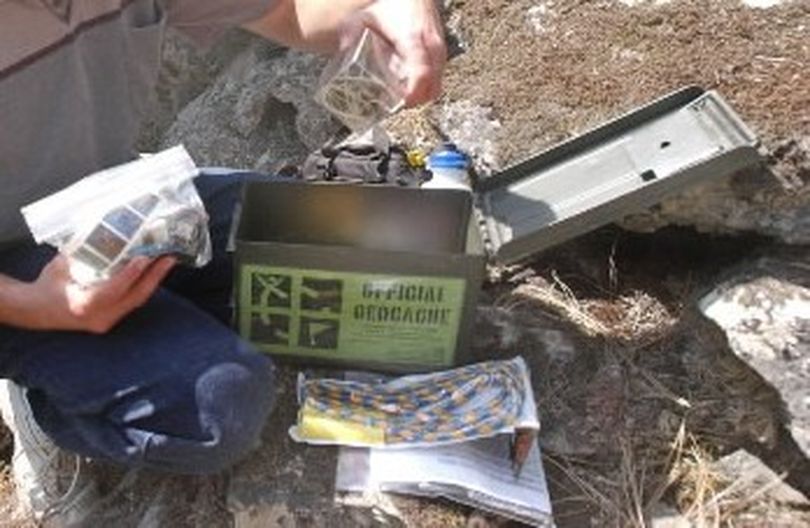BLM seeks ban on geocaches in wilderness

PUBLIC LANDS -- The U.S. Bureau of Land Management is trying to get geocaches removed from wilderness and environmentally sensitive areas in Central Oregon.
Geocaches are the containers at the end of high-tech treasure hunts undertaken by hobbyists. They use GPS devices or smartphones to track down the caches, which can contain log books, toys or knick-knacks. Typically, the geocachers take something and leave something in the caches.
The bureau’s policy is nationwide, and local bureau officials are working with geocachers to remove 84 of the containers, some seasonal.
The idea is to keep man-made objects out of wild areas and avoid unplanned paths beaten to popular caching sites.
“Geocaching is absolutely a legitimate use of public land, but it’s inappropriate in wilderness areas,” said Carol Benkosky, district ranger in Prineville.
While geocache containers will be removed by geocachers, Bureau of Land Management spokeswoman Lisa Clark said the bureau won’t act against 22 “virtual” geocaches – coordinates that lead geocachers to a particular rock, tree or vista.
“You still have something you’ll see there,” Clark said. “You just won’t have a physical cache there.”
Read on for more details about the specific Oregon wilderness areas.
The areas are the Badlands, Spring Basin and Lower White River wilderness areas, as well as land on nearby Horse Ridge and other lands deemed environmentally sensitive. Along with wilderness areas the lands have titles like “research natural areas” and “areas of critical environmental concern.”
Central Oregon is a hot spot for geocachers. One of them, Yoleen Faerber of Bend, said there are 1,000 to 2,000 sites in the region.
Faerber said she understands the agency’s concerns, and geocachers have heeded calls to stay out of seasonally sensitive areas, such as raptor nesting areas.
Geocachers are out to enjoy the outdoors and generally soft on the land, she said.
Under the watchwords, “cache in, trash out,” Faerber said, “It is not uncommon to see me walking the trail out with a bag full of garbage.”
